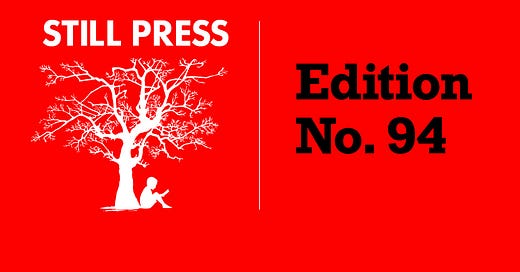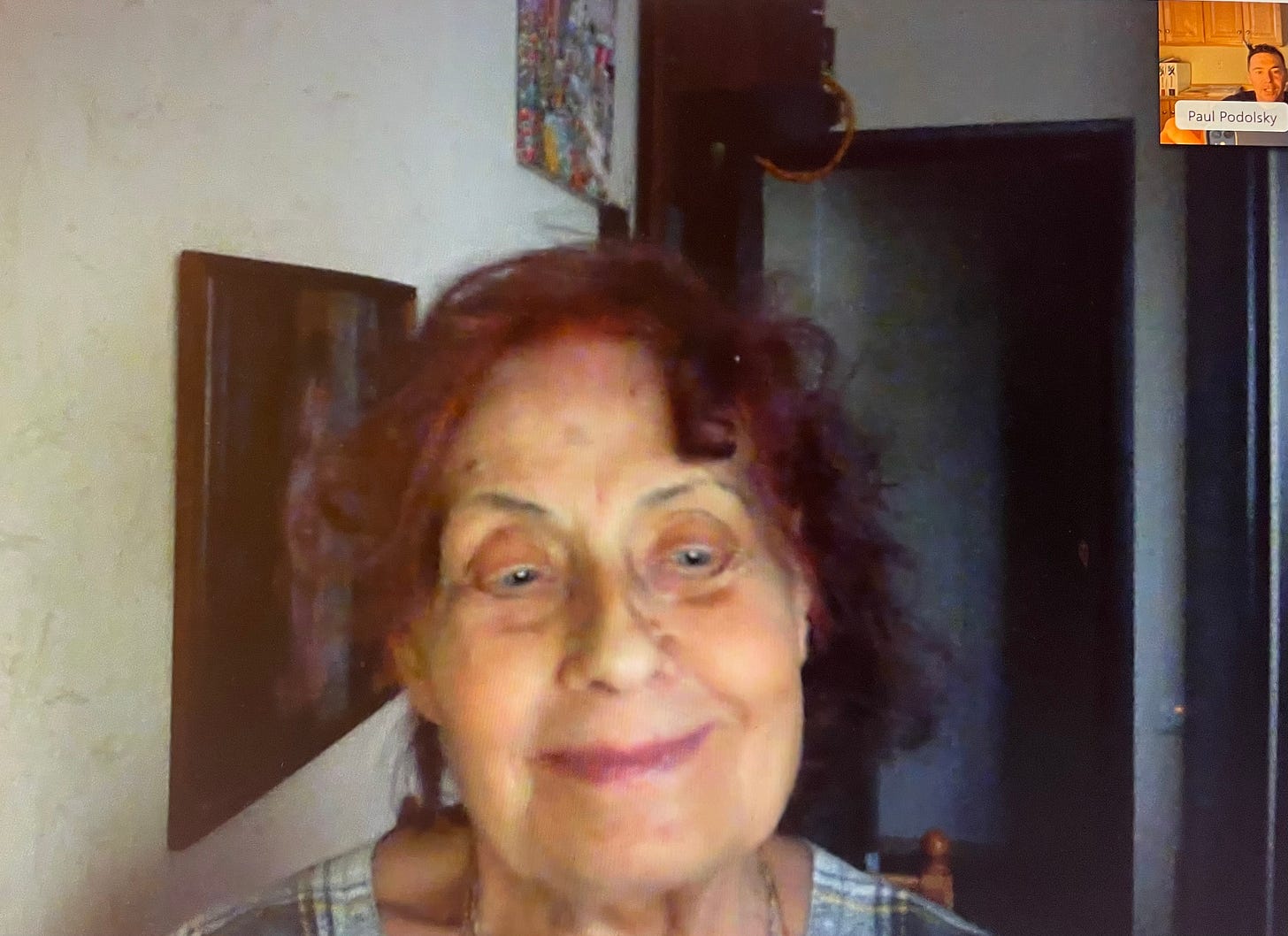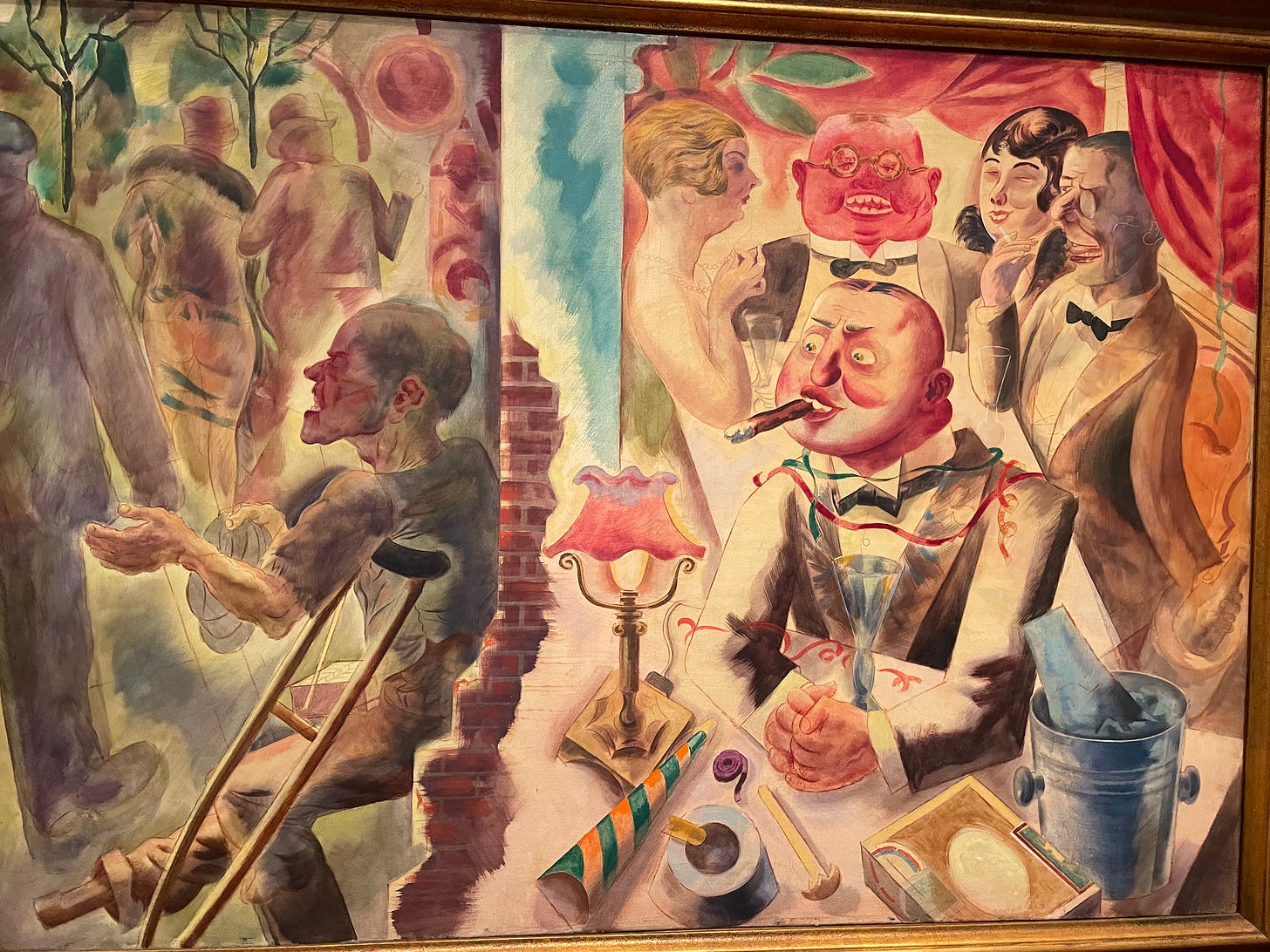If you are new to these essays, welcome! My name is Paul. I am a writer and investor. I wrote the book Raising a Thief about being a parent. You may have seen my writing in The Wall Street Journal. For many years I was at Bridgewater Associates, an investment firm. If you read my stuff, you will better understand money and a number of other topics as well. Feedback: paul@paulpodolsky.com. I read every note and learn from them all.
As a species, we favor intoxicants. Part of the process of maturation and self-actualization is learning how to perceive the world just as it is, without intoxicants. Doing so is tricky because reality isn’t precisely knowable so determining what part is distortion requires consistent effort. Yet, the cost of not putting in the effort is higher still—whether that is making sense of money, the government or yourself.
There are obvious intoxicants, like crack. By the numbers, the most popular and lethal drug is alcohol. Yes, wine with a meal and friends can create a special magic. Alcohol can also be addictive, is a carcinogen, interrupts sleep, adds weight and boosts cortisol. A reader recommended Annie Grace and I found the accompanying video interesting. Less obvious intoxicants are too numerous to name and include things like money and consumption or emotions like ego, anger and despair.
How to live without distorting intoxicants? Much pop psychological advice—a recent example is Jay Shetty’s book Live Like a Monk—argue attachments are the problem. If you read Raising a Thief, you know that’s melarky. You can’t form meaningful relationships with your partner and children unless you deeply attach. If anything, the lack of attachments is another form of reality distortion.
A more accurate answer may be this—maturation equals learning how to see things as accurately as possibly and at the same time tolerating the discomfort and even pain this creates. It’s certainly a daily struggle for me. A few case studies below illustrate the point more broadly.
An interesting question in each is what the cost is of getting sober. Severe alcohol withdrawal is fatal. So perhaps there is a rate at which removing an intoxicant, like jingoism, that does the least worst amount of damage. The more widespread the narcotic, likely the harder it is to answer that question definitively.
Ukraine
Last week, ordinary Russians swung from intoxication to reality regarding Ukraine. Ukraine was on TV, distant and possibly unpleasant until Putin announced conscription. Then the war was on the other end of the telephone or in the mailbox, insisting they show up at recruitment centers. Those Russians who could fled.
The intoxicant is both Putinism and, more broadly, Russia’s distorted sense of global relevance. Russia is 148 million people spread across an impossibly large expanse of 11 time zones. It is the last country that needs more territory. Those intoxicated aren’t just Putin, it is a broad swath of the population including, yes, my mother-in-law, who I photographed this week on Skype as she asserted the US started all this and quoted Tucker Carlson (who Russian State TV amplifies) back to me.
The intoxicant ebbs as Russians being sent to the front see exactly what is happening to their fellow soldiers. On Telegram, a Ukrainian soldier skirted a freshly exploded Russian tank. “I see feet, hands, you see a body?” one asked. It is terribly grisly. Another video showed a recruitment officer telling fresh Russian conscripts to load up on tampons as the military doesn’t have bandages at the front to staunch bleeding.
Last week, I also had the pleasure of hosting Russian writer Dmitry Bykov on the podcast. He is not well known in the West but is a legend within Russia. We will finish editing and release the episode next week. He predicted Putin will not last long, which is, to say the least, an out-of-consensus forecast. Yet, he himself wrote a book, Living Souls, some years ago based on Russia falling into homicidal civil war, another example of artists having an antenna that predicts what will come.
Money
Recently, a number of people who don’t normally ask me about financial questions, and in many cases find such topics boring, asked. That’s a sign people are getting worried. What has troubled specialists for some time is now hitting the mainstream.
The primary intoxicant in this case was money printing. No one, ever, has figured out precisely how much money to print. The gold standard didn’t work and what we have now, which is a group of experts, doesn’t work, either. The gold standard tied the amount of money printed to how much gold existed. This took the power away from fallible human beings but led to bursts of inflation when the supply of gold suddenly rose, like when the Conquistadores robbed the Aztecs. The gold standard also led to the Great Depression because the US needed to print and it could not or it would break the tie of money to gold.
On the way up, the money printing feels great. The price of what you own is determined by this money printing, so the houses, stocks, stock options you own rise in value. You feel rich! Moreover, corporate chieftains feel they are getting rich, so they often boost hiring.
But the price of the things you buy in the store, like onions, is determined by a network of intricate relationships tied to weather, fertilizer, transportation and electricity costs, debt and the labor market. Central bankers need to understand all those relationships to print the right amount of money so the price of onions doesn’t move around a lot. That’s impossible. Now that inflation is out of control, the authorities are rapidly removing the intoxicant, money. Psychological studies indicate a rise in depression when stock portfolios decline, ample evidence of the power of an intoxicant. I was reminded of this famous Gorsz painting, the haves and have nots.
Personal
The trickiest subject to observe without intoxicants is ourselves. Ego is an intoxicant but we also need ego to stand-up to what life throws at us. I think particularly of young people who are either out of a job or about to graduate into a labor force that will be rapidly deteriorating. Ego is required to set out on a difficult journey as is an accurate understanding of what comes next, which is higher unemployment.
Poll
Soon I will release my second book, Master, Minion. It is now possible to issue the book in serialized form, like Dickens did. So what is easier for you, getting the book a chapter at a time on Substack or getting the entire thing at once?
Investment Implications
There is A LOT going on.






